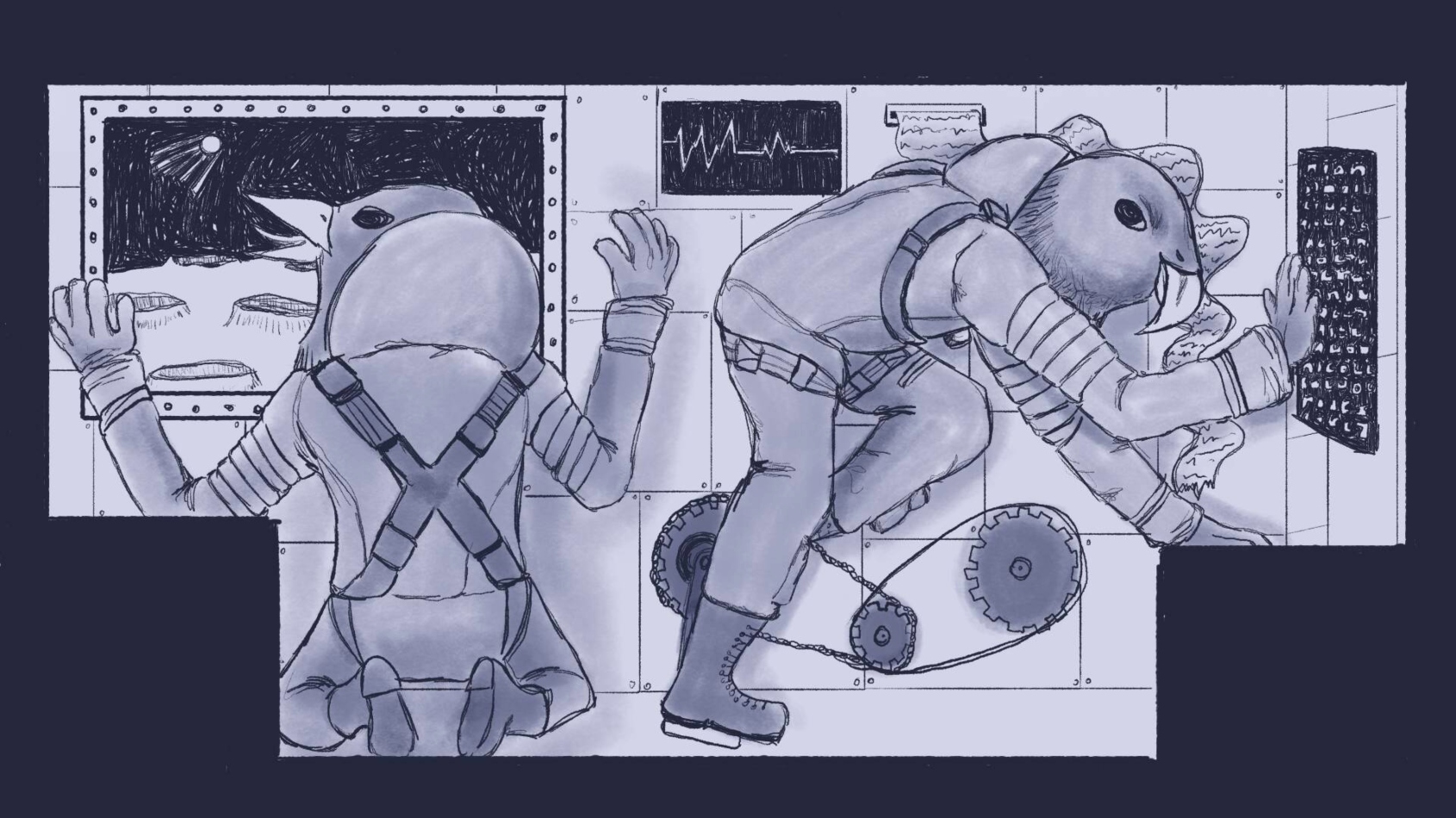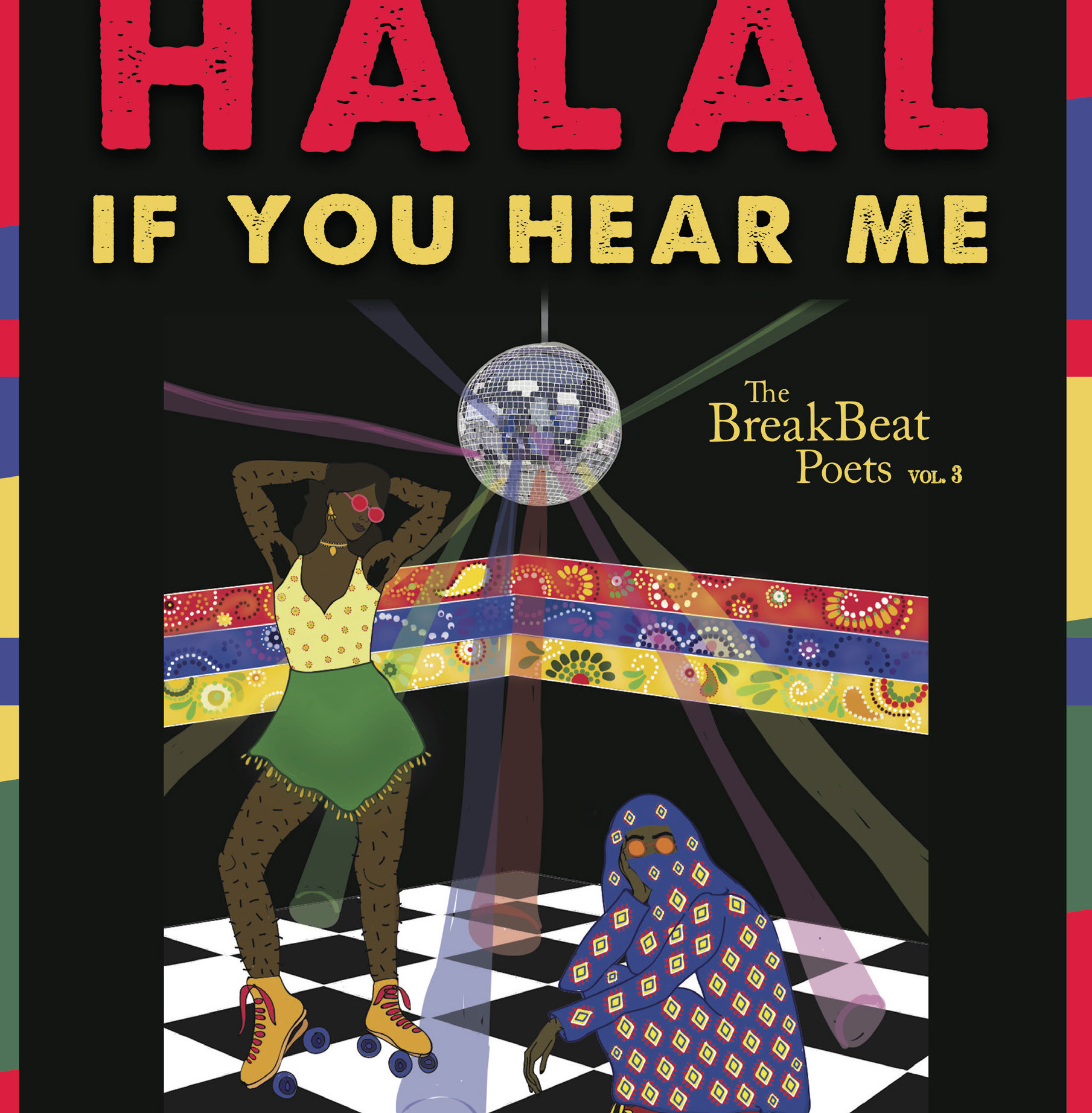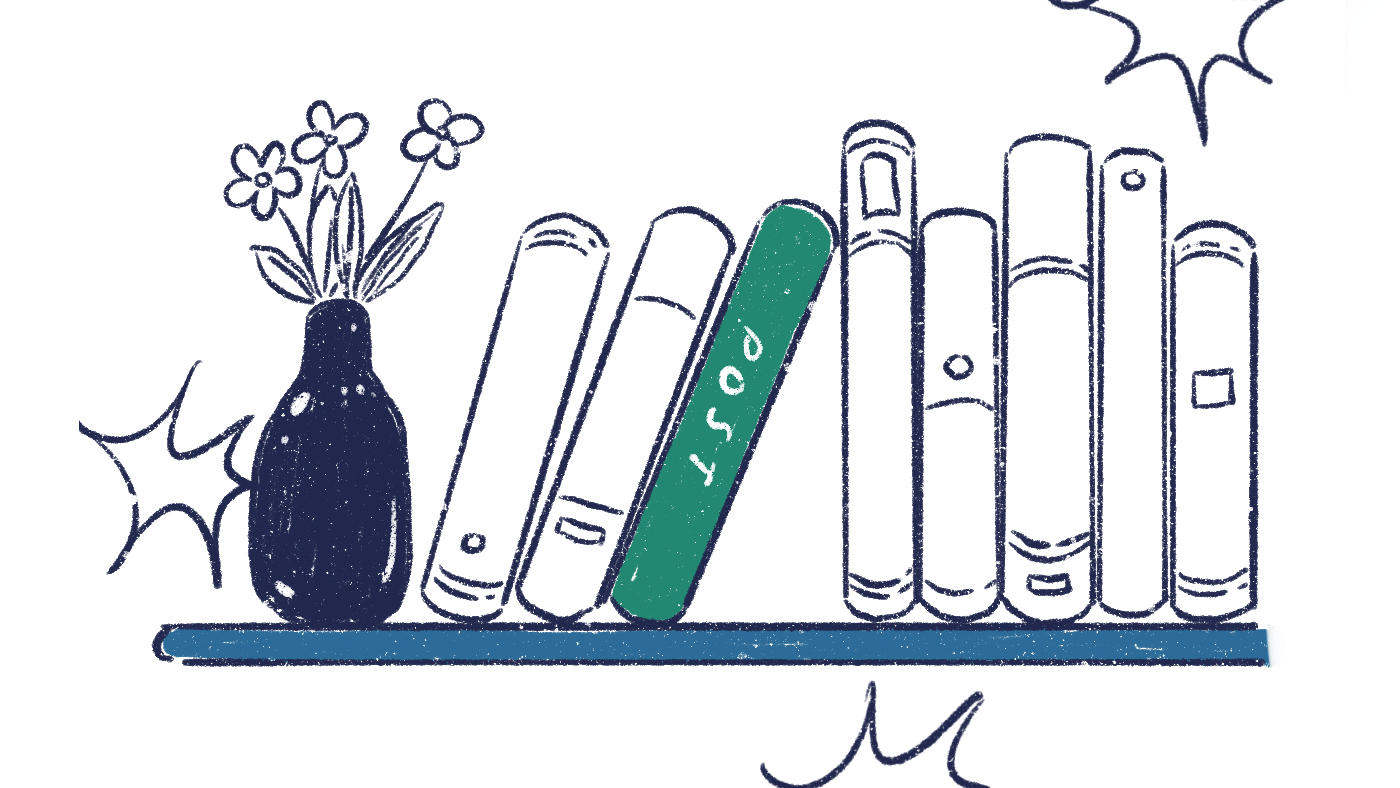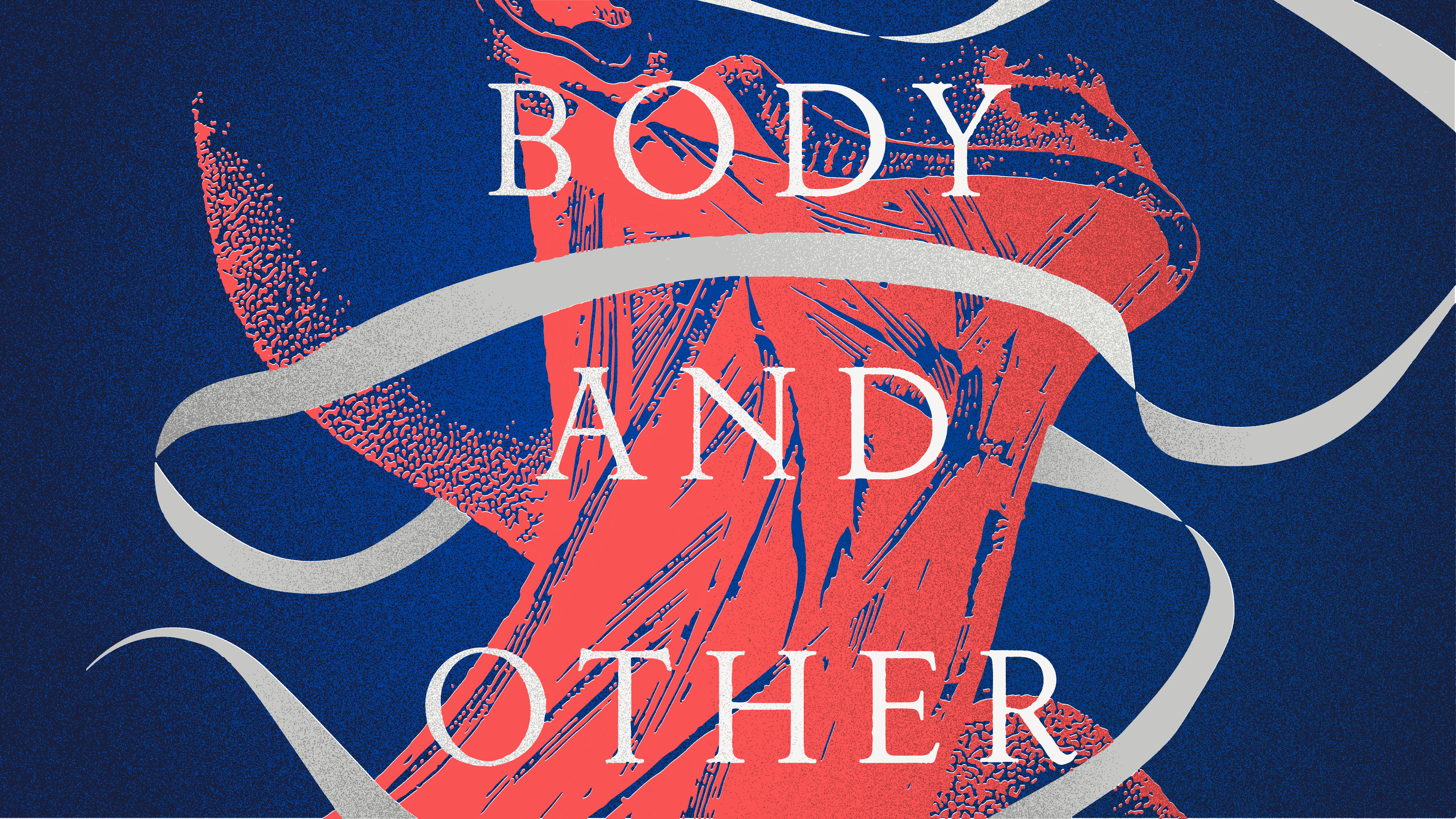Do you find yourself daunted, yet intrigued, by Russian literature’s reputation for scale and scope? Though I love a good sprawling 18th century Russian novel, most of these picks are Soviet-era. I think they’re more accessible, and they’ve got that special underground flavor. That’s the magic of state censorship: fascinating work gets written in secret.
Here are six books to consider, chosen for you by a former Russian lit minor.
“Omon Ra”
by Victor Pelevin, 1992. Translated by Andrew Bromfield. Farrar Straus Giroux, 154 pp.
The Space Race: the ultimate propaganda war. But what if it was pure propaganda? You’ve heard that Stanley Kubrick faked NASA’s moon landing. But are you ready for: Soviet Space Agency flies a “robot” to the moon, with two secret astronauts hidden inside, powering the rover like a two-man horse costume, to create the ultimate propaganda film?
Pelevin is a satire writer, and this is, sort of, a satire book. But sometimes satire doesn’t translate as funny, especially when your cruel government has just collapsed, and you end up with something shockingly raw: that post-collapse pain, that postmodern ache, and that absurdity that goes real hard until it goes right over the edge into tragedy.
Do you like Plato’s Allegory of the Cave? Then you’ll love “Omon Ra.”
“The Master & Margarita”
by Mikhail Bulgakov, translated by Diana Burgin & Katherine Tiernan O’Connor, 1967. First Vintage International Edition, 335 pp.
“Don’t you know that manuscripts don’t burn?”
Art like we’ve never seen or heard before: we don’t know when it will come along, and we don’t know if we’ll be ready for it when it does. Didn’t every new generation of avant-garde artists get laughed out of town? Will we know something truly new when we see it?
“The Master and Margarita” is that something. This is plot structure like you’ve never seen — art reaching back into history — and a story like you’ve never heard. Witches fly nude through the sky, the ‘true’ story of Jesus is being written, and yes, there is a giant talking cat. This book cuts to the core of civilization, mythology, history, the place of art in all of this — all because the Devil came to town for a visit.
“Moscow to the End of the Line”
by Venedikt Erofeev, 1969. Translated by H.W. Tjalsma. Northwestern University Press, 164 pp.
One day in the USSR, Venedikt sat down in front of his notepad (typewriter?), cracked his knuckles, and said, “Let’s get nasty.” A high-velocity holy alcoholic fool drinks his way home down the train line, sharing (among other things) his best cocktail recipes.
Due to Soviet rationing, however, these contain some truly insane alcohol replacements. “The Spirit of Geneva” is made with perfume, athlete’s foot remedy, and varnish. “The Balsam of Canaan” gets its kick from refined furniture polish (“I won’t remind you how to refine furniture polish — any child knows that.”) And “Bitches’ Brew”? “This is more than a beverage — it is the music of the spheres. What is the finest thing in the world? The struggle for the liberation of humanity. But even finer is this.” 100g beer, 30g shampoo, 70g dandruff treatment, 30g athlete’s foot remedy, and 20g bug spray.
You should read if you like wacky prose-poetry, if you like the Beat writers or Pynchon, or if you like the incomprehensible in general.
“Speak, Memory”
by Vladimir Nabokov, 1951. Penguin, 255 pp.
We’ll give this one Russian Lit Status even though it is an emigré memoir, detailing a Russian childhood and then a flight to America in the Revolution. Author and synesthete Vladimir Nabokov describes for you all the most vivid childhood memories you can no longer touch, with the wrenching quality of the unattainable — he was never able to return to the country he loved, just as all of us are exiled from our own childhoods.
Should I read this? You know when people say to you, “Yes, “Lolita” is horrifying, but so beautiful”? And you reply, “Hmm, don’t know about that, buddy”? Well, if you do want to experience that Nabokov beauty everyone is raving about, but you don’t want to wash your eyeballs, mouth, throat, soul out with bleach, then this is the book for you.
“Seventeen Moments of Spring”
by Yulian Semyonov, 1968. Fredonia Books, 308 pp.
Stierlitz is popularly known as “the James Bond of the Soviet Union,” but if anything, he is its George Smiley. Stierlitz is a deep cover Russian spy high in the Nazi hierarchy, witnessing Germany’s destruction in the tail end of WWII. He is slow and resourceful, moral to his core, and desperately missing his motherland.
This book is extremely famous in Russia, thanks mostly to its Cold War era miniseries adaptation, which raised Stierlitz to his icon status. Unfortunately for Western readers, there is only one English translation, and it is total garbage. I have come to suspect this was deliberate apathy on the part of Western publishers. During the Cold War, a viable socialist James Bond figure could have dealt our precious democracy a fatal blow.
Should I read this? Honestly, just read some John le Carré. “Tinker Tailor Soldier Spy” is beautiful this time of year.
“War & Peace”
by Leo Tolstoy, 1867. Translated by Larissa Volokhonsky and Richard Pevear. Vintage Classics, 1273 pp.
You know that moment when everything changes? When you suddenly see your whole past and future, understand your life’s purpose, and realize you’re alive, alive — and now everything is different?
And you know the next day, when life is still pretty much the same?
But even though the passion of that moment has receded, something inside you has shifted. “War and Peace” is about those moments and the paths between each one. One of the three main protagonists, and my favorite, is named Pierre. He’s a big, bumbling, wealthy young man, pretty ineffectual at just about everything, yet ever optimistic. Every couple of chapters he has a new epiphany and changes everything about his life. Even though it never works out, his flawed optimism is absolutely irresistible.
“War and Peace” spans the Napoleonic Wars for a bit more than a decade, beginning and ending almost arbitrarily. You just live these characters’ lives with them for a while. Life is so different for them than it is for us, and yet, it is just the same. And when it ends, you will miss them.
But which translation? This one. Pevear & Volokhonsky are the translating power couple. Always pick them.






















